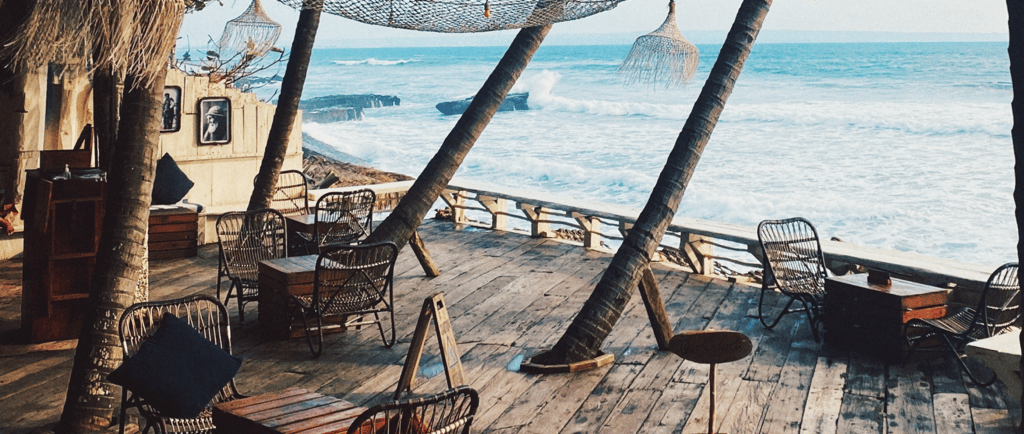UNDERSTANDING PROPERTY RIGHTS IN BALI
Leasehold and Freehold Explained


Understanding Property Rights in Bali: Leasehold and Freehold Explained
Real estate investment in Bali attracts many foreigners who are attracted by the island’s beauty and economic potential. However, before taking the plunge, it is crucial to understand the specifics of the Indonesian property system, particularly the concepts of leasehold and freehold. This article aims to shed light on these concepts and present the options available to foreign investors in Bali.
The Indonesian Legal Context
In Indonesia, land ownership is governed by the Basic Land Law of 1960 (Undang-Undang Pokok Agraria). This law establishes different types of land rights, the most relevant to foreign investors being the right of ownership (Hak Milik), the right of use (Hak Pakai), and the right of construction (Hak Guna Bangunan).
Freehold (Hak Milik)
Freehold, or Hak Milik in Indonesian, is the most comprehensive property right. It gives the owner full and perpetual control over the property. However, it is important to note that this right is exclusively reserved for Indonesian citizens. It is therefore not possible for a foreigner in Bali to own a Freehold property in their own name. If you still want to access full ownership, there is an alternative solution: buying through a foreign-owned company: the PT PMA.
If you are interested in buying a freehold property in Bali, one option you may want to consider is setting up a PT PMA. This is a limited liability company open to foreign investment, which has the legal right to own a property in Freehold.
However, it is worth noting that in order to set up a PT PMA, you will need to follow a number of steps. The first is to determine the type of company you want to set up, as there are different requirements for different types of companies.
Once you have determined this, you will need to obtain the necessary licenses and permits from the Indonesian Investment Coordinating Board (BKPM), then open a bank account in Indonesia and deposit the minimum capital required for your business (IDR 10,000,000,000 or approximately €610,000).
You will also need to obtain a tax number and register with the Ministry of Manpower.
Once your PT PMA is set up, you will be able to purchase property in Bali in your company’s name. This can be a useful way to avoid some of the legal restrictions on foreign ownership of property in Indonesia. However, it is important to note that there are still some limitations on foreign ownership and you will need to ensure that you comply with all relevant regulations.
Features of freehold:
- Unlimited duration
- Can be inherited
- Can be sold, traded or used as collateral for a loan
- Offers the greatest legal certainty
Leasehold (Hak Pakai)
For foreigners, the most common option is the leasehold, which can take two main forms:
1. Hak Sewa (equivalent to the emphyteutic lease):
- Usual duration of 25 years, renewable with the agreement of the owner of the land
- Can be held directly by foreigners
- Used mainly for residential properties
This type of property is a good alternative to the Freehold, as it does not require the creation of a company with a minimum capital contribution.
2. Hak Pakai: A property option for foreign residents in Bali
Indonesian law offers foreigners an interesting solution to acquire real estate in Bali: the Hak Pakai. This property title, which literally translates to "right of use", has several advantages for non-Indonesians wishing to settle on the island of the gods.
Main features of Hak Pakai
1. Legal recognition: Hak Pakai is fully recognized by Indonesian law.
2. Accessibility: It can be obtained directly in the name of a foreign buyer.
3. Duration: Initially granted for 30 years, it can be extended twice (20 years, then 30 years), offering a total potential duration of 80 years.
4. Transferability: The title can be transferred to family members or heirs.
Conditions and restrictions
- Residence: Hak Pakai is intended for people planning to reside in Bali permanently or for a major part of the year.
- Visa: A resident visa is required to obtain this title.
- Personal use: Rental of the property acquired under Hak Pakai is not permitted.
Advantages over other options
- Simplicity: Unlike buying through a PT PMA (foreign-owned company), Hak Pakai does not require the creation of a complex legal structure.
- Flexibility: In the event of a sale to an Indonesian citizen, Hak Pakai can be converted into Hak Milik (full ownership).
Hak Pakai thus represents an interesting alternative for foreigners wishing to settle permanently in Bali, offering a balance between legal security and administrative simplicity.
Characteristics of leasehold:
- Limited duration, but renewable
- Offers fewer rights than freehold
- More accessible to foreign investors
- Can be sold or sublet, under certain conditions
Acquisition Strategies for Foreigners
In the face of these restrictions, foreign investors have developed several strategies to acquire real estate in Bali:
1. Nominee Agreement:
An Indonesian citizen holds the title to the property in the name of the foreigner. This method, although common, carries significant legal risks and is not recommended by experts.
2. PT PMA Company Formation:
The foreigner establishes an Indonesian company with foreign capital, which can then acquire Hak Pakai rights. This option is more legally secure, but involves additional costs and administrative procedures.
3. Long-Term Lease:
The investor enters into a leasehold (Hak Sewa), a long-term rental agreement (usually 25 years or more) with an Indonesian owner. This method offers flexibility and security, without the complications of direct ownership.
Conclusion
Investing in Bali real estate can be a rewarding experience, but it is essential to understand the local legal framework. While options for foreigners are limited compared to freehold, the leasehold system offers exciting opportunities for those willing to navigate the dynamic Balinese real estate market. With a prudent and well-informed approach, investors can take advantage of the potential of this paradise island while minimizing legal risks.
